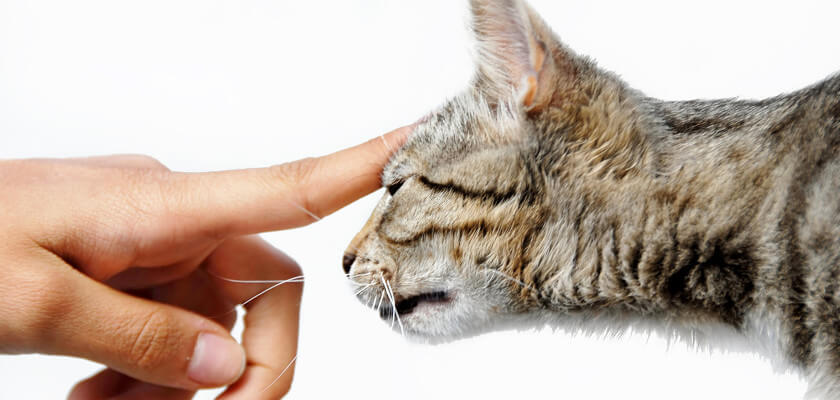Cat behaviorism is a very complex issue, the in-depth understanding of which requires not only practice, but also theoretical knowledge. Even the most experienced guardians may not understand the cause of some feline behavior. They result from very complex evolutionary processes. A feline behaviorist, or psychologist, is a person who is able to translate the complex system of animal communication into human language. Is it worth consulting such a specialist? When is it worth doing? Read more about the cat behavior expert!
Cat behaviorist – what does he do?
A behaviorist is a person who specializes in knowing the natural behavior of an animal. In the case of the feline behaviorist, these are of course cats. There are a lot of stereotypes and false beliefs around them, so his help is often useful.
Such a person has a complete understanding of the feline etiology and natural habits. The feline behaviorist has the tools to understand where certain undesirable behavior comes from. In this way, he can explain to the caretakers of the pet how to effectively help the pet.
How does the feline behaviorist work?
To explain an animal’s behavior, the behaviorist must spend some time in its natural environment. That is why, usually, a home visit cannot be complete without a careful observation of the cat’s everyday life and surroundings. Of course, it is possible to consult online or by phone, but in the case of more complex problems, such forms of assistance may not be enough.
Cat behaviorist – does he need to be a vet?
Many people wonder if a feline behaviorist needs to be a veterinarian. Animal keepers usually trust vets the most and turn to them when they have problems with their cat’s behavior. Meanwhile, not every vet is familiar with feline behaviorism.
It is clear that many vets deepen their knowledge in zoopsychology and behavioral studies. However, this is not a rule. Do not equate a behaviorist with a veterinarian, and vice versa – not every doctor will be a behaviorist.
The range of his knowledge of the cat behaviorist
However, zoopsychologists must have at least a basic knowledge of animal medicine. There is a reason why the best cat behaviorists are also veterinary technicians. Many problems that may appear to be behavioral are, in fact, of a medical nature. A competent cat psychologist always orders tests to rule out this possibility at the beginning.
Feline behaviorist – how to become one?
The cat behaviorist is an open profession, so theoretically anyone can advertise it. However, those people who can support their knowledge with appropriate education are trustworthy. Competences can be expanded during professional courses and postgraduate studies.
As a rule, COAPE behaviorists are the most trusted ones. The Center of Applied Pet Ethology is an international organization that conducts multi-level courses confirmed by the issuance of a diploma. The COAPE course is aimed at people who come into contact with animals on a daily basis and want to deepen their knowledge about their behaviorism.
Cat behaviorist – when to contact him?
You can contact a cat behaviorist whenever your pet’s behavior seems disturbing. Most often, caregivers signal about taking care of things outside the litter box, conflicts within the home herd or destroying furniture.
Cat behavior – rule out health problems first
Before you report to a feline behaviorist, it’s a good idea to see your vet. It will then be possible to rule out a medical basis for the undesirable behavior. Cat keepers are often guided by unpleasant stereotypes that cats are inherently malicious. Consequently, they want the behaviorist to explain to the pet to stop fooling around and (for example) start using the litter box instead of pitting off to bed.
Can a feline behaviorist help diagnose the problem?
In fact, animals do not have such complex emotions and are not guided by human categories such as jealousy and malice. Their behavior may be behavioral. Then the cat shows dissatisfaction, fear or discomfort to which it is caused by a specific situation. Very often, however, the source of the problem is an undiagnosed disease. A set of tests must be performed to exclude it. If the problem is not health, a feline behaviorist will be the right person to go to.
The Feline Behaviorist – When Can It Help?
You can contact a behaviorist when a cat:
- does not get along with another (human or animal) family member;
- takes care of outside the litter box;
- exhibits aggressive behavior;
- is excessively withdrawn or scared;
- exhibits compulsive behavior (for example, he licks himself frequently and heavily);
- vocalizes excessively.
Of course, these examples are not everything. You can report to a cat behaviorist whenever your cat’s behavior bothers you, and you can be sure that it is not the result of health problems. Sometimes a phone call or a short visit is all it takes to find the cause of the problem.


